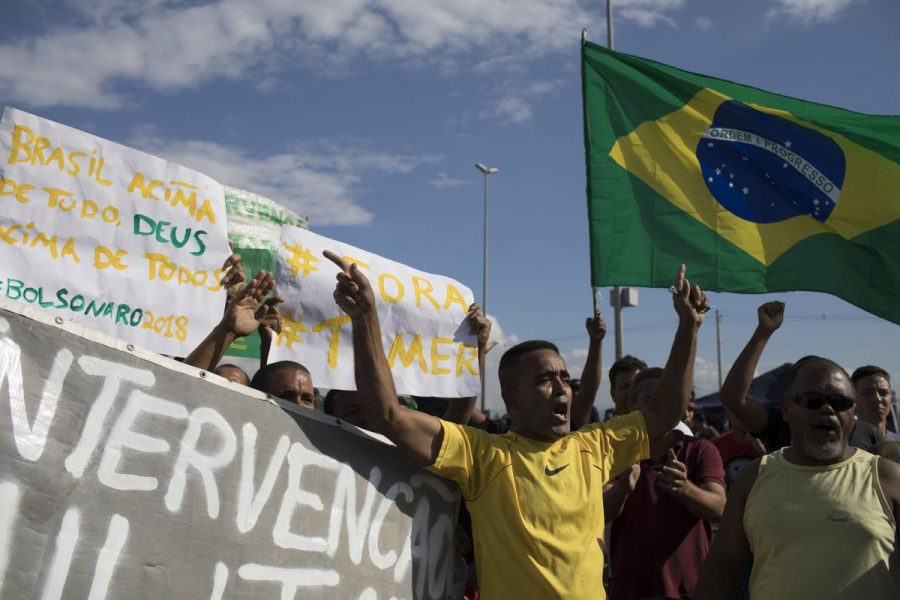Through the Eye of the Eagle: How Strikes Affect Us
On May 29th, the Student Council decided to brighten the Monday of a myriad of caffeine-supported students by entertaining a High School Kahoot game about different aspects of Graded. As it happens with most games with results based on sheer conviction and willingness, the winner wasn’t all that surprising. When the questionnaire came to an end, the victor’s name – “Cancel Mocks” – shone through the auditorium as Juniors cheered in joy and laughter. Later that week, it almost seemed as if what was occurring outside those very walls took notice of what 11th graders most wanted – more time to study. The situation grew into an intriguing ordeal: the most massive uprising in recent Brazilian history was taking place, yet students found a way to make the most out of it.
In its most basic form, the strike bringing Brazil’s slowly recovering economy to a halt is premised on an acute rejection of the government. The truckers started out by demanding a decrease in the price of diesel and a tax reform related to truck driving. Since diesel prices increased in Brazil after a 2016 policy change, the cost for petroleum rose significantly in correspondence to international prices. Besides, the scale of the truckers’ stoppage overwhelmed Temer’s unpopular administration, forcing a fuel-based concession from the government. Nevertheless, as grocery shelves emptied and drivers waited hours to fill their tanks, Brazil started, in numerous regions, to resemble a less horrid version of the post-apocalyptic world seen in The Walking Dead.
In an email last Wednesday, Mr. Boerner wrote that “we will not be able to operate classes on Friday, June 1st, 2018 and will close school,” explaining that “due to the very slow return of diesel fuel to the city, we are unable to ensure that our buses will have fuel for Friday routes.” Regardless of this tragic reality, this also meant one thing for all the anxious and occupied Juniors – the postponement of the End of Year Exams (also known as “Junior Mocks”). In a different message, High School Principal Ocki Fernandes wrote that “Juniors were expected to begin their end of year IB assessments on Monday,” but “due to the foreseen number of absences we will not run exams on Monday, but a regular review class schedule.” As exams resume this week, the last few days served as an opportunity for 11th graders to become as confident in taking their tests as the truck drivers were in protest against the government.
On Wednesday, as I walked through Graded’s hallways, I overheard some peculiar statements: “At least the strike hit right when Mocks were in session.” A friend even told me he felt “like joining the truckers now.” However, these joking-but-true declarations now sound like difficult promises to keep. Currently, the strike has overshadowed the opportunity of “more study time” and caused several momentary setbacks for the Graded community.
For instance, the email cited that approximately 550 students arrived late to class last week, due to the disruptions caused by the strike concerning the school’s bus system. The IB Group 4 project schedule was also rearranged, hindering Juniors’ opportunities to further their projects due to time constraints. A notable number of students ended up not coming to school at all, missing crucial material from their classes. As I sat in some of my classes, I realized that fewer students made my classes more tiring. At Graded, I’ve grown used to having classes in which student interactions constitute the majority of my learning experience. With the strike at its peak last week, I was shocked by how many students did not attend some of my periods.
Ultimately, it becomes relevant to think about the strike in regards to how it helps us on a general level: as a nation in desperate need of change. Even though the protesters believe that their demonstration brings political attention to our nation’s issues, others denounce the truckers’ strike for causing the widespread shortage of food, fuel, and supplies. When we scrutinize the “ups and downs” of such a colossal event, it’s important to think about the segregation that emerges from the act of protesting. With that, while many support a revolution’s initiative, others ask themselves: what is a strike’s value if its consequences – rather than the cause being fought for – causes anger in millions of citizens?
Sources: Business Insider, BBC















